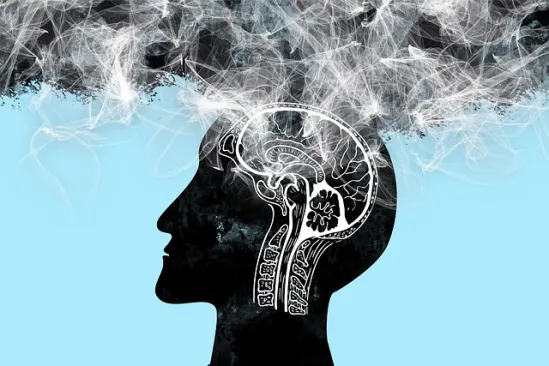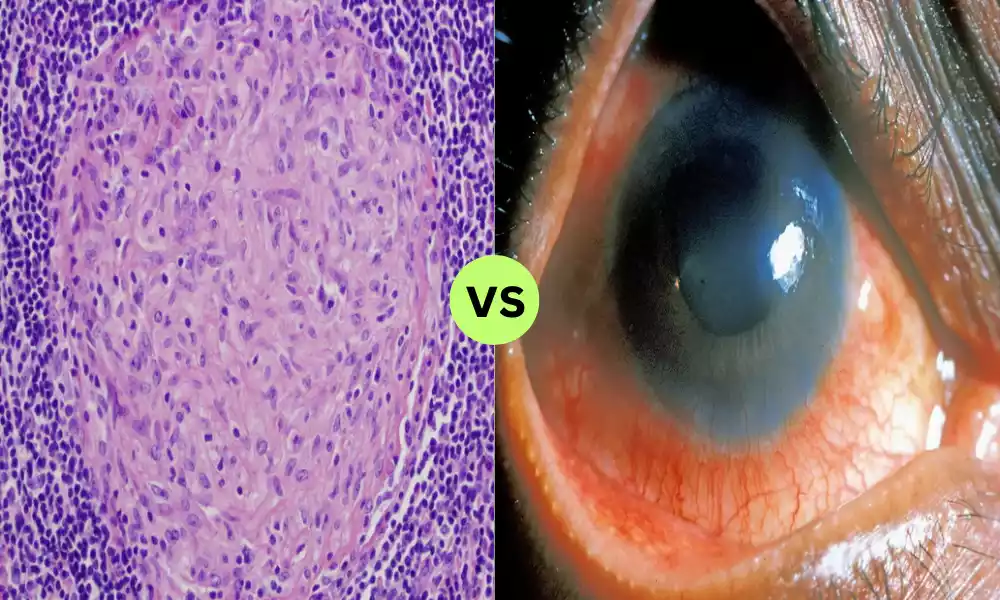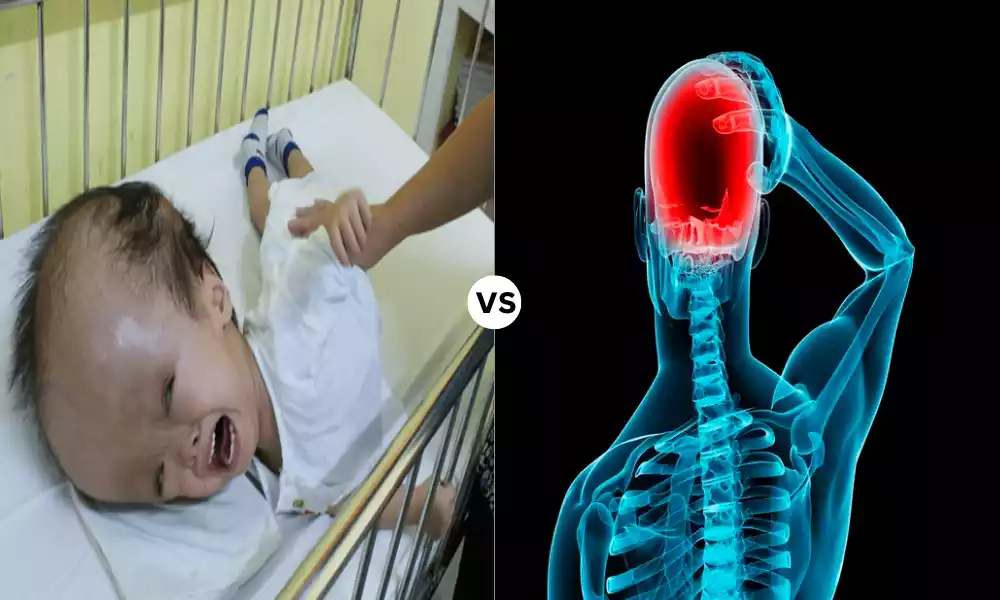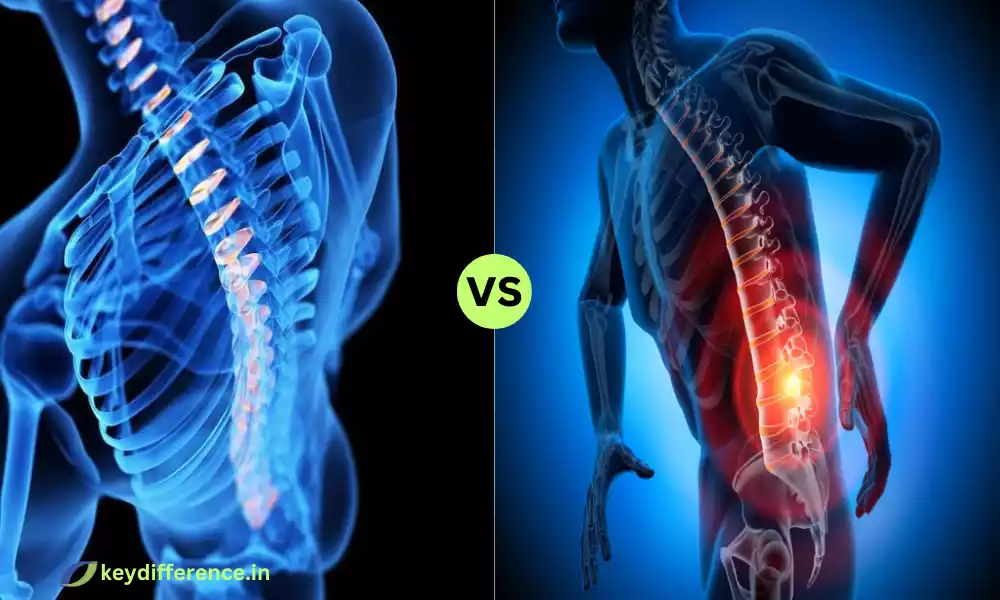Dementia is a prevalent and profound health challenge, affecting millions of individuals globally. It encompasses a range of cognitive disorders, the most common of which is Alzheimer’s disease.
As our aging population grows, dementia’s impact on individuals, families, and healthcare systems becomes increasingly significant. Understanding dementia’s complexities, including its types, causes, and caregiving, is crucial for addressing this global health issue effectively.
In this concise overview, we’ll explore key aspects of dementia, shedding light on its various forms, risk factors, and the importance of early diagnosis and comprehensive care.
What is Senile Dementia?
Senile dementia, also known as late-onset or simply senility, is a medical term that refers to the progressive and irreversible decline in memory, cognitive function, and other cognitive abilities that occur in people who are older generally aged 65 or over.
The decline in cognitive function that occurs in the senile degenerative process is so severe as to affect daily living and improve the quality of living. It is typically caused by changes that occur with age within the brain for instance the build-up of tangles or plaques in the case of Alzheimer’s disease but it may also result from other causes such as vascular problems and Lewy body pathology.
Senile dementia is characterised by memory loss and impairment in judgement, difficulties with language as well as changes in personality and behavior which makes it different from normal cognitive declines that occur with age. It requires a careful diagnosis and treatment to provide the person affected with the highest living quality while facing the challenges that come with the condition.

What is Presenile Dementia?
Presenile dementia, which is also referred to as early-onset dementia is a term that refers to a set of cognitive disorders that progress. They have a direct impact on people who are younger than the normal age of onset in most dementia disorders that are typically less than 65 years old.
Contrary to senile degenerative disease which is mostly affecting elderly people, presenile dementia is seen in people who are at the peak of their life, both in their work and personal.
Presenile dementia is characterized by many features of dementia that develop late, like the gradual and irreparable decline in cognitive abilities such as memory loss difficulty in judging, language impairments as well as changes in personality and behavior. The main difference is the age at which onset occurs as presenile dementia is more common in those aged 40 to 50 or even early 60s.
The most common causes of pre-eminent dementia include early-onset Alzheimer’s, frontotemporal degeneration, and rare genetic diseases such as Huntington’s disease. Due to the earlier time frame at which it develops it is common for presenile dementia to have an impact on the ability of a person to keep a job, maintain relationships, and independence.
It is crucial to recognize and treat pre-existing dementia early to ensure adequate care, support, and treatment that improves the patient’s quality of life and deal with the particular issues that come with this type of dementia.

Comparison Table of Senile and Presenile Dementia
Here’s a comparison table outlining the key differences between senile and presenile dementia:
| Aspect | Senile Dementia | Presenile Dementia |
|---|---|---|
| Age of Onset | Typically occurs in individuals aged 65 and older. | Occurs in individuals younger than 65, often in their 40s, 50s, or early 60s. |
| Common Types | Alzheimer’s disease, vascular dementia, Lewy body dementia, and others. | Early-onset Alzheimer’s disease, frontotemporal dementia, Huntington’s disease, and others. |
| Cognitive Decline | Gradual and progressive decline in cognitive functions, memory, and other mental abilities. | Similar to senile dementia, with progressive cognitive decline, memory loss, and impaired judgment. |
| Behavioral Changes | May experience personality changes and emotional instability. | Behavioral and personality changes are common, often leading to difficulties in relationships and work. |
| Genetic Factors | Genetic predisposition can be a risk factor but less frequently associated. | Strong genetic component, with some forms directly linked to genetic mutations. |
| Diagnostic Methods | Clinical assessment, cognitive tests, and neuroimaging. | Clinical assessment, genetic testing, and neuroimaging. |
| Management and Treatment | Medications, lifestyle modifications, and supportive care. | Symptomatic treatment, support services, and genetic counseling. |
| Prognosis | Generally, a slower progression, but life expectancy varies based on the specific type of dementia. | Generally, a faster progression, often leads to more significant impairment in a shorter time frame. |
| Impact on Daily Life | Can significantly impact daily life and independence but often occurs when individuals are retired or near retirement age. | Can disrupt a person’s career, family life, and social activities during their prime working and personal years. |
Please note that individual experiences and outcomes can vary within each type of dementia, and the specific type and progression of the condition may influence the characteristics and impact. Early diagnosis and tailored care are essential for managing both senile and presenile dementia effectively.
Importance of Distinguishing Between Senile and Presenile Dementia
The distinction between senile (late-onset) as well as presenile (early-onset) dementia is essential for a number of reasons:
- Early intervention and treatment: Recognizing the presence of dementia in children can lead to prompt interventions and treatments. Early detection may offer more chances for psychological, medical, and lifestyle changes to slow the progress of the disease and enhance quality of life.
- Diagnostic Diagnosis: The distinction between presenile and senile dementia is crucial to determine the kind of dementia that you are experiencing. Each kind of dementia has specific causes and treatments. For instance, early-onset Alzheimer’s disease requires different treatment strategies than later-onset Alzheimer’s or other forms of dementia.
- Genetic counseling: In the case of dementia with an underlying genetic component like early-onset Alzheimer’s disease or Huntington’s Disease, counseling for genetic issues is crucial. Individuals can make educated decisions regarding family planning and genetic testing for family members.
- psychosocial impact: The condition commonly is a problem for people during their working lives and also when they have families. Knowing this distinction will help caregivers and families to be aware of the unique difficulties faced by patients who are younger which include maintaining jobs, relationships, and caring for them.
- Resources Allocation: Healthcare organizations and other support services require efficient allocation of resources. Differentiating between presenile and senile dementia can help allocate funds as well as research efforts and support services to meet the individual needs of each individual.
- Prognosis and life planning: Senile and presenile dementia can have distinct life expectancies and disease progressions. Knowing what kind of dementia a person has helps in determining more accurate diagnoses and lets families and the individual prepare for the near future. which includes financial, legal, and caregiving arrangements.
- Research and Drug Development: A precise differentiation is essential for research and clinical trial efforts. Clinical trials could target specific kinds of dementia, and selecting the right people to participate is essential to advance research into the cause of disease and generate new therapies.
- Education and awareness: Public awareness and informing healthcare professionals on the difference between presenile and senile dementia can result in early recognition and diagnosis and reduce the stigma that is associated with cognitive decline in people younger than.
Separating between presenile and senile dementia isn’t just a case of semantics, but is a crucial step in giving the best treatment, support, and support for those suffering from these ailments.
Early detection, accurate diagnosis, and individualized interventions can dramatically enhance the lives of people who suffer from dementia as well as their families.
Genetic counseling and family support
Genetic counseling and support for families are crucial elements of care for families and individuals affected by genetic diseases which include those that are that are associated with dementia.
Here’s a brief overview of their importance:
Genetic Counseling:
- Risk assessment: Genetic counselors determine the risk that a person has of passing on or inheriting an illness that is genetic that causes early-onset degeneration caused by genetic mutations, such as those found in Huntington’s disease and familial forms that are a result of Alzheimer’s.
- Education: Genetic counselors provide specific information regarding the genetic disorder as well as its patterns of inheritance and its potential effects on an individual and their families. They aid families and individuals to comprehend complex genetic concepts in an understanding and compassionate way.
- Informed Decision Making: Genetic counselors assist people in making informed decisions regarding genetic testing. They also discuss the benefits of, drawbacks, and emotional and psychological implications that genetic tests can have on people.
- Family Planning: For those who are who are at risk of developing genetic conditions Genetic counselors can talk about the options for family planning, including prenatal tests preimplantation genetic diagnosis, and adoption, assisting couples and individuals to make decisions that are compatible with their ideals and values.
- psychological support: Genetic counseling focuses on the psychological and emotional impact of genetic disorders on individuals or their loved ones. Counselors offer emotional support, strategies for coping, and tools to help manage anxiety and stress.
Family Support:
- Help with emotional issues: Family members of those suffering from dementia, particularly when it comes to presenile dementia, can experience a lot of emotional stress. Family support services provide an environment that is safe for families to share their emotions, seek advice, and meet with other families with similar struggles.
- Education: Providing families with information on the kind of dementia and its progress and resources that are available will aid them in understanding and dealing with the issue. The education process helps families make informed decisions regarding treatment and support.
- Caregiver Training: Family members often are caregivers for loved ones who suffer from dementia. Family support programs typically provide caregiver training as well as resources to improve caregiving skills reduce the burden on caregivers and enhance caregiver quality.
- Respite Care: Respite Care Services enable family caregivers to relax from their caregiving duties. This brief respite is vital for their health and to avoid burnout.
- Support Groups: Support groups offer the opportunity for family members to get connected with others who have similar circumstances. Sharing strategies and experiences with others can help reduce feelings of loneliness and provide beneficial information.
- Legal and Financial Guide: In order to navigate financial and legal issues including the planning of estates and accessing financial aid programs, is difficult for families. Support services can offer assistance and guidance to help with these matters.
- Advocacy: Family support groups and advocacy groups are working to increase awareness of dementia and to improve accessibility to healthcare services as well as research and the support of the community for people affected along with their family members.
Genetic counseling and family counseling play vital roles in helping people or families affected by genetic causes of dementia to navigate the complicated issues that come with these diseases.
These services aim to equip people with the knowledge and emotional support as well as practical resources that allow them to make educated choices, offer high-quality healthcare, and enhance their overall well-being.
Management and Treatment Approaches
The treatment and management methods for both senile as well as presenile dementia seek to address the emotional, cognitive, and functional difficulties that come with these disorders. Although there isn’t a cure for all types of dementia, a variety of strategies can be used to enhance the quality of life of the affected.
Here are the most common treatments and management strategies:
- Medications:
- Cholinesterase Inhibitors: These medicines (e.g. donepezil, galantamine, rivastigmine) are often prescribed to treat Alzheimer’s disease in order to enhance cognitive performance and reduce the progression of symptoms.
- Memantine: A treatment for mild to severe Alzheimer’s disease memantine regulates glutamate levels throughout the brain possibly decreasing cognitive decline.
- Medications for Behavioral symptoms: Antipsychotics or mood-stabilizing drugs can be prescribed to treat psychological and behavioral symptoms, like agitation, aggression, and psychosis. However, they are often closely monitored for potential adverse negative effects.
- Lifestyle Modifications:
- Diet: A balanced diet that is rich in antioxidants and omega-3 fatty acids can assist in promoting the health of your brain. A healthy diet can also aid in managing comorbid conditions such as diabetes and hypertension.
- physical activity: Regular exercise is a great way to boost mood, overall well-being, and cognitive performance. It can also lower the risk of heart disease that are associated with vascular dementia.
- Mental Stimulation: Engaging in activities that stimulate your mind like games, puzzles, and activities, can aid in maintaining cognition and slow decline.
- Social Engagement: Social engagement: Being active in your social life can help reduce feelings of loneliness and depression. The importance of having supportive relationships is for those suffering from dementia.
5. Sleep Management: Addressing sleep issues and creating a healthy sleep routine can boost cognitive performance and mood.
2. Supportive Care:
- speech and occupational Therapy: This treatment can aid people with dementia in retaining their independence and developing communication skills.
- Help for Caregiver: Assistance in education, respite, and support for family caregivers is vital. Support groups for caregivers and training programs can reduce stress on caregivers.
- Home Modifications: Adapting the living space to improve security and independence like installing handrails or removing dangers is essential.
- Assistive Devices: The use of assistive technologies such as the aid to remember, apps for reminders, and GPS devices for tracking can be beneficial to people with dementia and their caregivers.
3. Behavioral and Psychological Interventions:
- Cognitive Behavioral Therapy: This type of therapy may help to control symptoms of depression and anxiety, especially in people with anxiety or depression that is related to dementia.
- Validation Therapy: Validation therapy is a form of therapy that is a form of communication that focuses on empathy along with emotional care, especially for people suffering from advanced dementia.
- Clinical trials: Participation in clinical trials could provide access to new therapies and treatments aimed to slow or stop the progress of dementia. It is essential to speak with health experts and research institutions to find possible trial opportunities.
- Advanced Care Planning: Discussing the final wishes and choices with the person and their family members is essential in ensuring that the person’s wishes are honored as the condition develops.
- legal and financial planning: Legal and Financial Planning: Creating legal documents, such as powers of attorney, living wills, and other documents, and also taking care of financial issues is crucial for the future of health care and decision-making.
The treatment and management methods for people with dementia must be tailored according to the nature and severity of the disease, and the specific desires and needs of the patient and their loved ones.
It is essential for healthcare professionals and caregivers to collaborate to develop a comprehensive and supportive treatment plan. Regular follow-up visits and changes to the care plan are frequently required as the condition progresses.
Similarities Between Senile and Presenile Dementia
Senile (late-onset) and presenile (early-onset) dementia share a variety of similarities, despite the differences in the age at which they begin to develop.
Here are some of the key differences between them:
- Cognitive Decline: The two types of premenile dementia are associated with an accelerated decline in cognitive capacity. People with both types of dementia have problems with memory as well as thinking and problem-solving capabilities.
- Memory loss: The impairment of memory is a common characteristic of both senile as well as pre-degenerative dementia. People may have trouble with short-term memory issues, forget recent events, and may be unable to recall information from their past or names.
- Impairment in judgment: The two types of dementia typically cause impaired judgment and decision-making. People with dementia might make poor decisions or have difficulty assessing the risks in a timely manner.
- Communication Problems: People who have both presenile and senile dementia might have difficulties communicating and comprehending their language. They may be unable to find the appropriate words or observe conversations.
- Behavior and Psychological symptoms: Both kinds of dementia may cause mental and behavioral symptoms, which include anxiety, agitation aggression, depression, and hallucinations. These signs can have a significant impact on the person’s health and well-being as well as caregiver efforts.
- Functional impairment: As the disease progresses those suffering from both presenile and senile dementia usually experience a decrease in their capacity to complete everyday tasks on their own. This can include issues in the personal hygiene of their bodies, food preparation, and balancing finances.
- neurological changes: The underlying causes might differ The two types of dementia are characterized by neurologic changes in the brain, which include excessive protein accumulations (e.g. beta-amyloid plaques found in Alzheimer’s disease).
- Caregiver Problèmes: Caregivers of those who suffer from both presenile and senile dementia are faced with similar issues in providing care for their loved ones, regulating behavior, as well as ensuring the security and well-being of their loved relatives.
- Impact on quality of life: The two forms of pre-eminent dementia can have a significant impact on a person’s health and the families of those they love. The physical and emotional challenges that come with dementia are an experience shared by all.
- Need for support and resources: People suffering from both types of dementia need access to medical treatment as well as support services and tools to cope with the disease. This includes healthcare professionals as well as support groups, and caregiver assistance programs.
Although these are all very similar it’s crucial to realize that the onset age as well as the specific causes and the progression of the disease can differ significantly between presenile and senile dementia.
Thus, adjusting treatment and interventions according to each person’s specific circumstances and needs is vital to giving the best assistance and the highest living quality.
Future Research and Care Strategies for Dementia
Future research and treatment strategies for people suffering from dementia are crucial because of the increasing incidence of the condition and its profound effect on families, individuals, and health systems.
Here are a few key areas of research and possible directions for future research:
- Early Detection and Diagnosis:
- Develop and refine biomarkers as well as imaging techniques that allow the early detection of changes related to dementia within the brain.
- Research is essential to discover the most reliable preclinical indicators of dementia risk, which will allow to intervene before symptoms begin to begin to manifest.
- Increase awareness of dementia throughout the world to inspire people to get an early diagnosis and assessment.
- Precision Medicine:
- Discover individualized treatment strategies that are based on a person’s individual genetic as well as environmental aspects.
- Explore the possibility of developing targeted therapies to treat particular forms of dementia, like molecular or genetic subtypes.
- Disease-Modifying Treatments:
- Make sure you invest in the development of treatments for diseases that stop or slow the progress of dementia. This research focuses on a variety of forms that include frontotemporal and Alzheimer’s dementia.
- Find innovative approaches to treatment including immunotherapies and genetic therapies, which are aimed at reducing the pathological characteristics of dementia.
- Non-Pharmacological Interventions:
- Design and test non-pharmacological treatments including cognitive exercises, physical regimens, and lifestyle adjustments in order to promote cognitive health and prevent symptom development.
- Examine the potential of technology, like the brain-computer interface and virtual reality for enhancement and cognitive rehabilitation.
- Caregiver Support and Education:
- Increase the number of caregiver support programs in order to tackle the unique difficulties faced by dementia caregivers with training, respite care, along counseling and training services.
- Encourage education and training for healthcare professionals in the best practices for dementia care as well as communicating with families and patients.
- Palliative Care and End-of-Life Planning:
- Create guidelines and resources for palliative care services for people who suffer from advanced dementia. The focus should be on improving the quality of life and reducing symptoms.
- Engage in early discussions and advanced plans for care to ensure the wishes of patients regarding their dying are honored.
- Brain Health Promotion:
- Encourage healthy lifestyles for brain health by promoting public health that emphasizes the importance of physical activity, diet stimulating the mind, as well as social involvement.
- Research regarding the long-term effects of lifestyle changes on the health of your brain.
- Research Collaboration:
- Collaboration between researchers, institutions, and the government to advance the understanding of dementia and identify effective treatments.
- Facilitate the sharing of data and inter-disciplinary research by leveraging the skills of clinicians, scientists as well and data scientists.
- Global Initiatives:
- Promote global initiatives that address the growing epidemic of dementia, increase awareness, and decrease stigmatization associated with the condition.
- Assign resources to dementia research and care, primarily in middle and low-income countries where the prevalence of dementia is rising.
- Ethical and Legal Considerations:
- Develop and implement ethical guidelines for the application of new technologies for research and care for the elderly with a focus on privacy consent, and security of data.
- Consider ethical and legal issues related to decision-making for people who suffer from advanced dementia, such as advance directives and surrogate decisions.
Future research and strategies for care for people with dementia must focus on an integrated and person-centered approach which includes prevention and early intervention, efficient treatment, support for caregivers, and ethical issues.
Collaboration between stakeholders, such as health professionals, researchers, and policymakers as well as advocacy groups is essential to helping to advance these efforts and improve the lives of those who are affected by dementia.
Reference Books
Certainly, here are some reference books on various aspects of dementia, caregiving, and related topics that you may find valuable:
- “The 36-Hour Day: A Family Guide to Caring for People Who Have Alzheimer’s Disease, Other Dementias, and Memory Loss” by Nancy L. Mace and Peter V. Rabins
- This book provides practical advice and support for family caregivers of individuals with dementia, covering various aspects of caregiving and the disease itself.
- “Dementia Reimagined: Building a Life of Joy and Dignity from Beginning to End” by Tia Powell
- Dr. Tia Powell explores the challenges of dementia and offers a fresh perspective on how to provide compassionate and effective care.
- “Creating Moments of Joy: A Journal for Caregivers” by Jolene Brackey
- Jolene Brackey shares practical tips and creative ideas for providing meaningful and joyful moments for individuals with dementia.
- “The Alzheimer’s Action Plan: The Experts’ Guide to the Best Diagnosis and Treatment for Memory Problems” by P. Murali Doraiswamy and Lisa P. Gwyther
- This book provides insights into the latest research on Alzheimer’s disease and offers guidance on diagnosis, treatment, and caregiving.
- “The Validation Breakthrough: Simple Techniques for Communicating with People with Alzheimer’s and Other Dementias” by Naomi Feil and Vicki de Klerk-Rubin
- Naomi Feil’s Validation Method is explored in this book, offering compassionate communication techniques for interacting with individuals with dementia.
Conclusion
Dementia is a multifaceted and difficult condition that affects families and individuals across the globe. The distinction between presenile and senile dementia is vital for a proper diagnosis and personalized treatment. Genetic counseling and support for families are crucial in managing the genetic causes of dementia.
Future research and treatment strategies should focus on early diagnosis, precise medicine, and the development of new treatment options.
Furthermore, improving brain health as well as supporting caregivers, and addressing ethical issues are essential aspects of care for people with dementia. The reference books are a great source of information and advice for those dealing with the challenges of dementia.
As we work to improve our understanding of and support systems for people with dementia we hope to improve the living conditions of those affected and work towards efficient treatments and ultimately the possibility of an effective cure.







